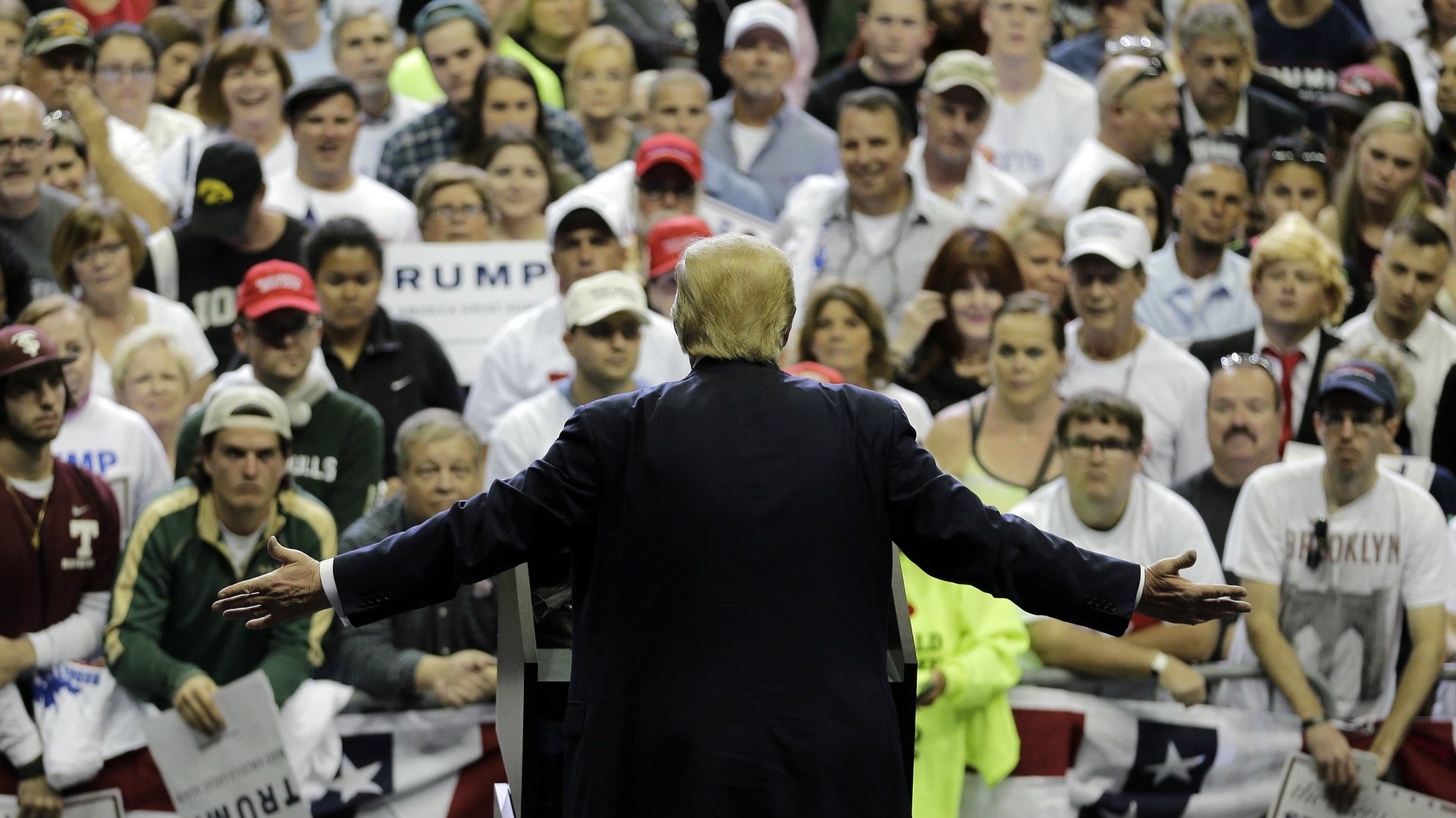A simple explanation of how free trade leads to populism
In a recent paper, Harvard economist and globalization skeptic Dani Rodrik argues that the increasingly integrated world economy has led to a rise in populism.


In a recent paper, Harvard economist and globalization skeptic Dani Rodrik argues that the increasingly integrated world economy has led to a rise in populism.
Rodrik suggests that the populist backlash against globalization is largely because the effects of free trade simply feel unfair. While the lost jobs and lower incomes some workers experienced in recent decades were mostly a result of automation and new technologies, Rodrik notes that populists rarely rail against these forces. Rather, it is globalization that gets most of the blame.
“What is it that renders trade so much more salient politically?” Rodrik asks. He presents a thought experiment:
Suppose Harry and John own two firms that compete with each other. Ask yourself how you feel about each of the scenarios below. In each of them, Harry outcompetes John, resulting in John and his employees losing their jobs. Should they be blocked or allowed to run their course?
1. Harry works hard, saves and invests a lot, and comes up with new techniques and products, while John lags behind.
2. Harry finds a cheaper (or higher quality) supplier in Germany.
3. Harry outsources to a supplier in Bangladesh, which employs workers in 12-hour a day shifts and under hazardous conditions.
4. Harry brings Bangladeshi workers to the U.S. under temporary contracts, and puts them to work under conditions that violate domestic labor, environmental, and safety laws.
Rodrik points out that these four scenarios are, from an economic standpoint, relatively similar. They all increase overall economic output and create similar winners and losers. Yet people are typically much more comfortable with scenarios one and two than they are with three and four. (Although scenario four is both unethical and illegal, its effects are almost identical to scenario three.)
Psychologists have shown that people aren’t bothered by unequal distributions of wealth so long as they feel there is an even playing field, Rodrik explains. But scenarios in which people lose jobs to people who work under different labor laws feel unjust. That’s what Rodrik thinks is behind calls for “fair trade” among populists and their supporters.
Pro-trade institutions like the World Trade Organization have already enshrined the idea of fairness in rules, such as prohibiting the export of goods at prices below production costs. But Rodrik thinks economists and policymakers should also consider all the other ways trade might seem unfair to the average worker.